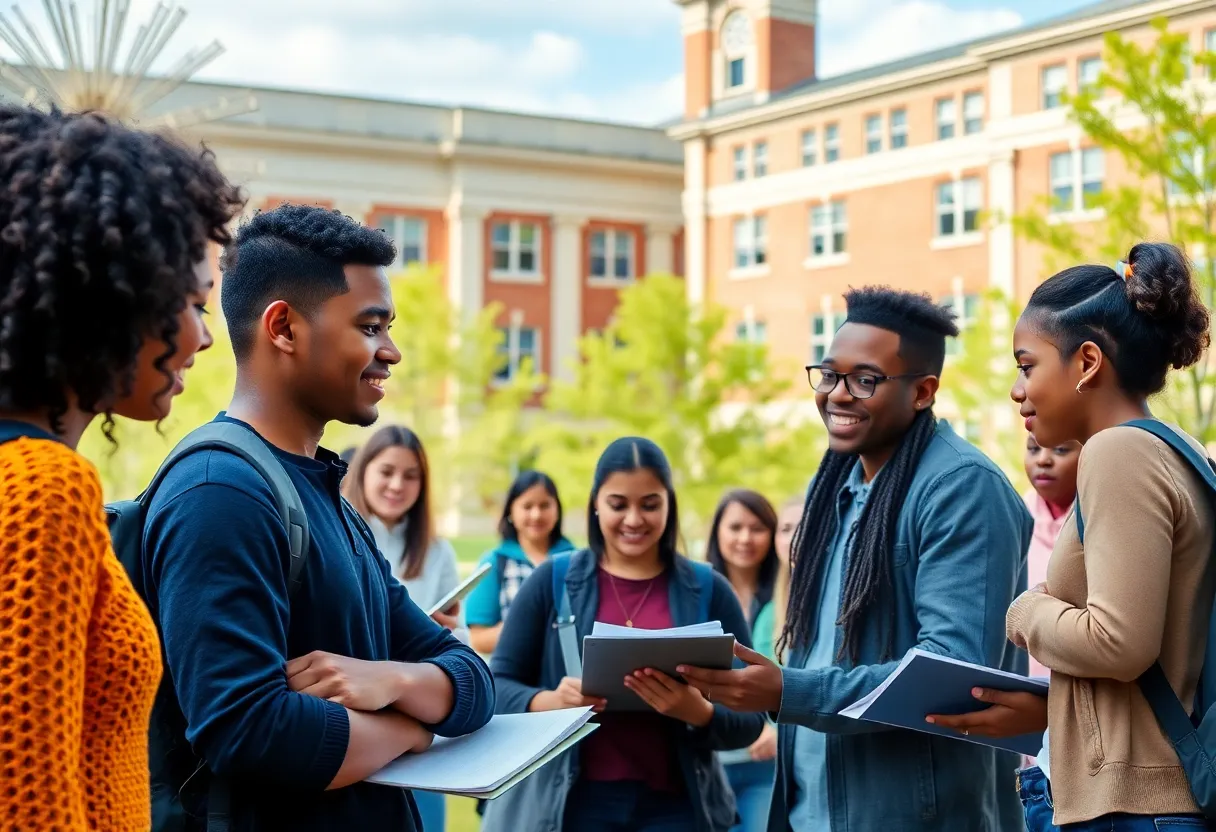News Summary
Virginia Democrats are urging Republicans to oppose DOJ investigations into state universities’ hiring and admissions practices. Tensions rise as the DOJ targets George Mason University amid concerns over antisemitism and race-based practices. Governor Youngkin maintains a stance against such preferences, while Democrats argue his actions threaten educational diversity. The backdrop includes a recent Supreme Court ruling affecting admissions policies, illustrating the ongoing conflict in Virginia’s education landscape.
Virginia – Virginia Democrats are urging their Republican colleagues to oppose ongoing investigations conducted by the Department of Justice (DOJ) into the hiring and admission practices of state universities. This situation has intensified tensions between the Democratic-controlled legislature and the Republican leadership under Governor Glenn Youngkin and Attorney General Jason Miyares. Central to this discord are the implications of policies initiated during President Trump’s administration that appear to affect Virginia’s educational institutions.
The DOJ launched an investigation on Monday, focusing on allegations of discriminatory practices at George Mason University. The investigation particularly scrutinizes the university’s handling of multiple reports regarding antisemitism on campus. This marks the fourth inquiry into George Mason, which has been under scrutiny for race-based hiring practices and campus responses to antisemitism. Assistant Attorney General Harmeet K. Dhillon emphasized that institutions receiving federal funds must comply with civil rights laws, reinforcing the critical notion of equal access across all races.
Governor Youngkin has publicly stated that antisemitism and racial preferences in admissions or hiring have no place in Virginia’s universities. He has emphasized the requirement for adherence to Supreme Court rulings and federal laws in relation to university practices. Furthermore, Virginia Democrats have claimed that Youngkin misused his influence over the Virginia Military Institute board, particularly regarding the non-renewal of the contract for Cedric T. Wins, the institution’s first Black superintendent. This claim adds another layer to the mounting concerns over leadership decisions affecting diversity and representation within educational systems.
Moreover, Senate Majority Leader Scott Surrovel has pointed out that universities typically adopt a holistic approach to admissions, taking into account various factors beyond just academic performance. House Majority Leader Charniele Herring shared her personal experiences about how George Mason has significantly aided first-generation college students like herself, highlighting the importance of inclusive policies in higher education.
In contrast, Virginia Republicans assert that the DOJ’s actions aim to address civil rights violations and enforce accountability within university systems. Speaker of the House Don Scott commented on the involvement of the General Assembly in pushing back against what they see as direct assaults on higher education principles in the state.
The backdrop to these tensions includes a recent ruling by the Supreme Court against race-based admission systems in the case of Students for Fair Admissions v. Harvard, which has influenced similar policies in Virginia. Democrats have criticized Governor Youngkin’s administration for taking actions they believe undermine Virginia’s educational landscape.
Outside the realm of education, serious concerns have also arisen surrounding clean energy initiatives in Virginia. Environmental activists have criticized Dominion Energy’s integrated resource plan for failing to include a timeline for the retirement of carbon-emitting power plants. This pushback coincides with Governor Youngkin’s veto of legislation intended to regulate and test cannabis products for adults aged 21 and over, reinforcing existing laws where adults have the ability to home-grow cannabis but cannot purchase regulated products. Youngkin has expressed that health and safety concerns are the main justification for this veto, reiterating past sentiments regarding cannabis regulation.
Another recent development affecting students is the implementation of a new cellphone policy for public schools in Virginia, set to take effect on January 1, 2025. This policy mandates that students store their cell phones away during school hours to reduce distractions and address escalating mental health issues. Exemptions will be provided for students with medical needs that necessitate access to their phones. Additionally, the Virginia Department of Education is preparing to release a toolkit to assist school leaders in executing the new cellphone policy effectively.
The ongoing investigations into university practices, challenges regarding clean energy policies, and shifts in regulations surrounding cannabis reflect a dynamic political climate in Virginia where education, safety, and civil rights are at significant crossroads.
Deeper Dive: News & Info About This Topic
- 29 News: Virginia Environmental Groups Concerned With Dominion Energy’s Long-Term Energy Plan
- WSAZ: Bill Eliminating Woke Words Introduced in West Virginia House
- WTRF: New West Virginia Law Could Ban Woke Words
- The Weather Channel: Virginia Beach Weather
- Politico: 2024 Elections Live Coverage Updates

Author: STAFF HERE WILLIAMSBURG WRITER
The WILLIAMSBURG STAFF WRITER represents the experienced team at HEREWilliamsburg.com, your go-to source for actionable local news and information in Williamsburg, James City County, and beyond. Specializing in "news you can use," we cover essential topics like product reviews for personal and business needs, local business directories, politics, real estate trends, neighborhood insights, and state news affecting the area—with deep expertise drawn from years of dedicated reporting and strong community input, including local press releases and business updates. We deliver top reporting on high-value events such as Williamsburg Farmers Market, Yorktown Market Days, and Busch Gardens Food & Wine Festival. Our coverage extends to key organizations like the Greater Williamsburg Chamber of Commerce and Colonial Williamsburg Foundation, plus leading businesses in education and hospitality that power the local economy such as College of William & Mary, The Williamsburg Winery, and Sodexo. As part of the broader HERE network, including HEREVirginiaBeach.com, we provide comprehensive, credible insights into Virginia's dynamic landscape.


